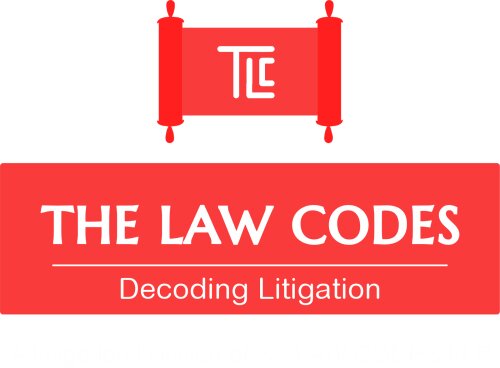Best Data Center & Digital Infrastructure Lawyers in India
Share your needs with us, get contacted by law firms.
Free. Takes 2 min.
Or refine your search by selecting a city:
List of the best lawyers in India
About Data Center & Digital Infrastructure Law in India
Data Centers and Digital Infrastructure form the backbone of India's rapidly growing digital economy. The country is witnessing a surge in demand for secure data storage, reliable connectivity, and cloud services driven by increasing digitization across sectors. As a result, data center setups and digital infrastructure projects are being established in metro cities and emerging hubs alike. In India, the legal landscape around data centers is evolving to address new-age challenges such as data privacy, cybersecurity, real estate acquisition, and environmental compliance. Legal frameworks are designed to ensure the operational integrity of data centers while aligning with national priorities like data localization and digital sovereignty. Investors, service providers, and enterprises must navigate a mix of technology, real estate, environmental, and regulatory laws to successfully establish and manage data center and digital infrastructure operations.
Why You May Need a Lawyer
There are several scenarios where legal advice or representation becomes crucial in the field of data center and digital infrastructure in India. These include:
- Setting up a new data center or expanding an existing facility, which involves regulatory compliance and licensing
- Dealing with land acquisition, leasing, or zoning laws for data center locations
- Negotiating contracts for technology procurement, vendor partnerships, and managed service agreements
- Ensuring compliance with data protection regulations, including issues around cross-border data transfer and storage
- Addressing matters related to cybersecurity, data breaches, and incident reporting requirements
- Securing approvals from diverse authorities, such as environmental, fire safety, and local municipal bodies
- Handling taxation, incentives, and state-specific industrial policies for digital infrastructure
- Resolving disputes with customers, vendors, landlords, or government authorities
- Guiding foreign investors on FDI, technology transfer, and local partnership norms
Local Laws Overview
India's legal framework for data centers and digital infrastructure blends sector-specific regulations with broader tech and business laws. Key legal areas include:
- Data Protection and Privacy: The Digital Personal Data Protection Act, 2023 regulates handling, processing, and storage of personal data, with strict localization, consent, and security requirements.
- IT Act, 2000: The Information Technology Act and its amendments set out laws regarding electronic records, cybersecurity, and enforceability of electronic contracts.
- Telecom and Connectivity: Data centers often require telecommunications licenses and regulatory clearances under Department of Telecommunications (DoT) guidelines.
- Real Estate and Zoning: Local State laws govern land use, construction norms, and environmental clearances for data centers. Industrial status for data centers is recognized in some states, offering certain benefits.
- Power and Utilities: Provisions on electricity supply, captive generation, and use of renewable energy are integral, especially for large-scale infrastructure.
- Environmental Compliance: Environmental clearance, waste management, and energy efficiency standards are enforced under central and state laws.
- Taxation and Incentives: Various incentives exist at the central and state levels for investments in digital infrastructure, including stamp duty relief, exemptions, and priority sector status.
- Foreign Direct Investment (FDI): The sector allows up to 100 percent FDI under the automatic route, subject to security and sectoral regulations.
Frequently Asked Questions
What is the legal definition of a data center in India?
A data center is broadly defined as a physical facility that houses servers, storage systems, network equipment, and other IT infrastructure for storing, processing, and disseminating digital data. Some states and government policies provide more detailed definitions for regulatory and incentive purposes.
Is data localization mandatory in India?
Yes, for certain categories of data defined under the Digital Personal Data Protection Act, 2023 and sectoral regulations like the Reserve Bank of India. Some data, such as personal, critical, or financial data, must be stored and processed within India.
Are data centers regulated by a specific authority?
While there is no single exclusive authority regulating data centers, multiple agencies are involved, such as the Ministry of Electronics and Information Technology (MeitY), Department of Telecommunications (DoT), and local state authorities for land and environmental approvals.
Do I need special approvals to set up a data center?
Yes, setting up a data center in India usually requires multiple approvals, including land and construction permissions, environmental clearances, fire safety no-objection certificates, and, in some instances, telecom approvals.
What security standards must a data center comply with?
India encourages compliance with globally recognized standards such as ISO 27001 (Information Security Management System) and TIA-942 (Telecommunications Infrastructure Standard for Data Centers), as well as sectoral or client-specific requirements.
Can foreign companies invest in Indian data centers?
Yes, 100 percent Foreign Direct Investment (FDI) is allowed in data centers under the automatic route. However, investors must comply with security, data protection, and sectoral regulations.
How does the Digital Personal Data Protection Act impact data centers?
The Act imposes strict obligations on data fiduciaries, including consent management, data security, breach notification, and data localization. Data centers must ensure technical and organizational measures to protect personal data.
Are there special tax incentives for setting up data centers?
Several states offer tax and fiscal incentives, such as stamp duty exemptions, subsidized power tariffs, and infrastructure support. Eligibility depends on investment size, location, and specific state policies.
What are the environmental compliance requirements?
Data centers must obtain clearances for environmental impact, manage electronic waste, ensure energy-efficient operations, and comply with norms regarding water usage and emissions, as directed by central and local authorities.
What should be included in a data center services contract?
A robust contract should clarify service level agreements (SLAs), data protection obligations, liability provisions, exit and transition terms, dispute resolution mechanisms, and compliance requirements for both parties.
Additional Resources
- Ministry of Electronics and Information Technology (MeitY): Primary body for digital initiatives, policies, and data protection regulations in India.
- Department of Telecommunications (DoT): Governs telecom and connectivity infrastructure, including licensing for data centers.
- Central Pollution Control Board (CPCB): Issues guidelines for environmental compliance, electronic waste, and emissions.
- State Industrial Development Corporations: Offer guidance on local incentives, land allocation, and approvals.
- Reserve Bank of India (RBI) and Sectoral Authorities: Provide circulars on data storage and processing for regulated industries like banking and telecom.
- Industry associations (e.g., NASSCOM, Data Centre Council of India): Support industry standards, advocacy, and networking for stakeholders in the digital infrastructure ecosystem.
Next Steps
If you require legal assistance related to data centers and digital infrastructure in India, consider the following steps:
- Identify the specific area of concern, such as regulatory compliance, environmental clearance, contracts, or dispute resolution.
- Collect all relevant documentation, such as permits, contracts, correspondence, and policy documents.
- Reach out to a qualified legal professional or law firm with experience in data center and digital infrastructure matters.
- Discuss your objectives and challenges clearly to receive tailored legal advice.
- Stay informed about evolving statutory and regulatory changes through government notifications and industry forums.
- Engage with relevant authorities early in the project to streamline approvals and compliance management.
Acting early and seeking expert legal counsel can help avoid costly mistakes and ensure smooth establishment and operation of data center and digital infrastructure assets in India.
Lawzana helps you find the best lawyers and law firms in India through a curated and pre-screened list of qualified legal professionals. Our platform offers rankings and detailed profiles of attorneys and law firms, allowing you to compare based on practice areas, including Data Center & Digital Infrastructure, experience, and client feedback.
Each profile includes a description of the firm's areas of practice, client reviews, team members and partners, year of establishment, spoken languages, office locations, contact information, social media presence, and any published articles or resources. Most firms on our platform speak English and are experienced in both local and international legal matters.
Get a quote from top-rated law firms in India — quickly, securely, and without unnecessary hassle.
Disclaimer:
The information provided on this page is for general informational purposes only and does not constitute legal advice. While we strive to ensure the accuracy and relevance of the content, legal information may change over time, and interpretations of the law can vary. You should always consult with a qualified legal professional for advice specific to your situation.
We disclaim all liability for actions taken or not taken based on the content of this page. If you believe any information is incorrect or outdated, please contact us, and we will review and update it where appropriate.
Browse data center & digital infrastructure law firms by city in India
Refine your search by selecting a city.














